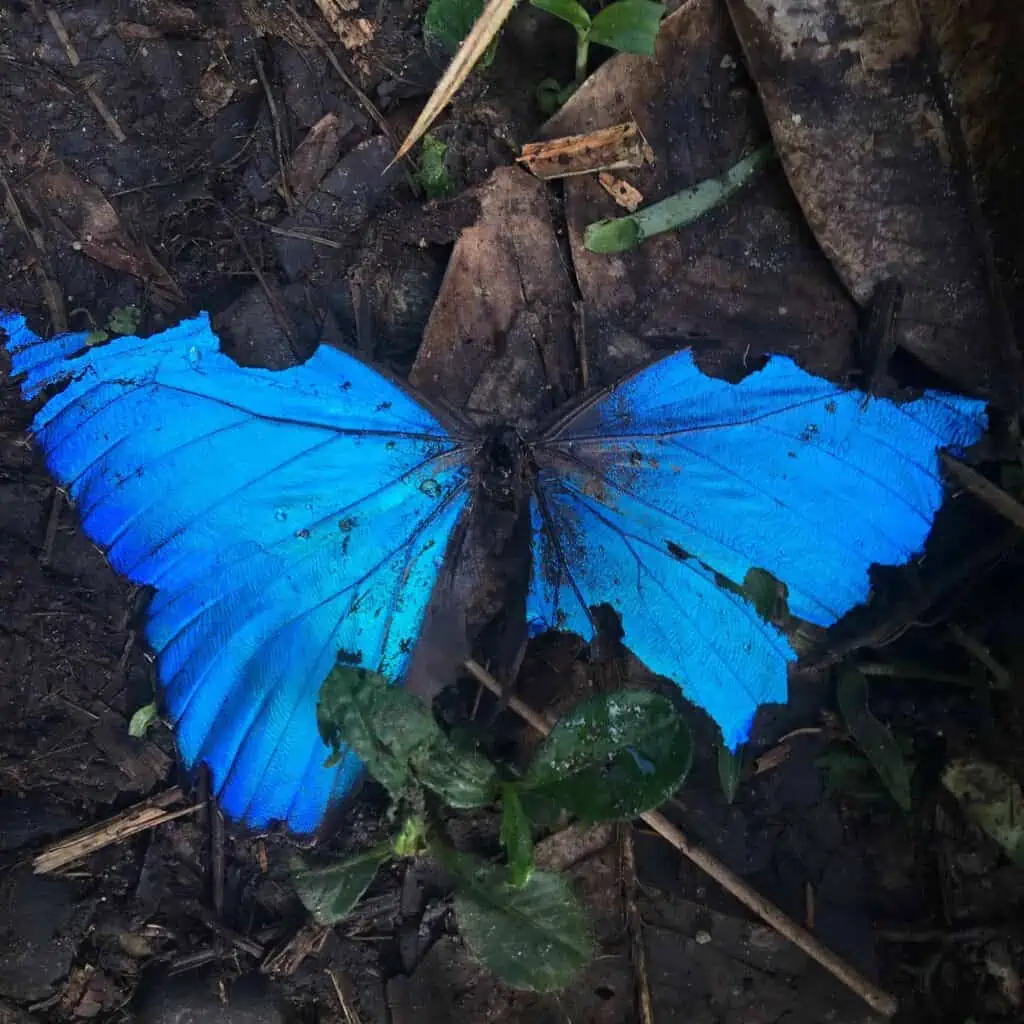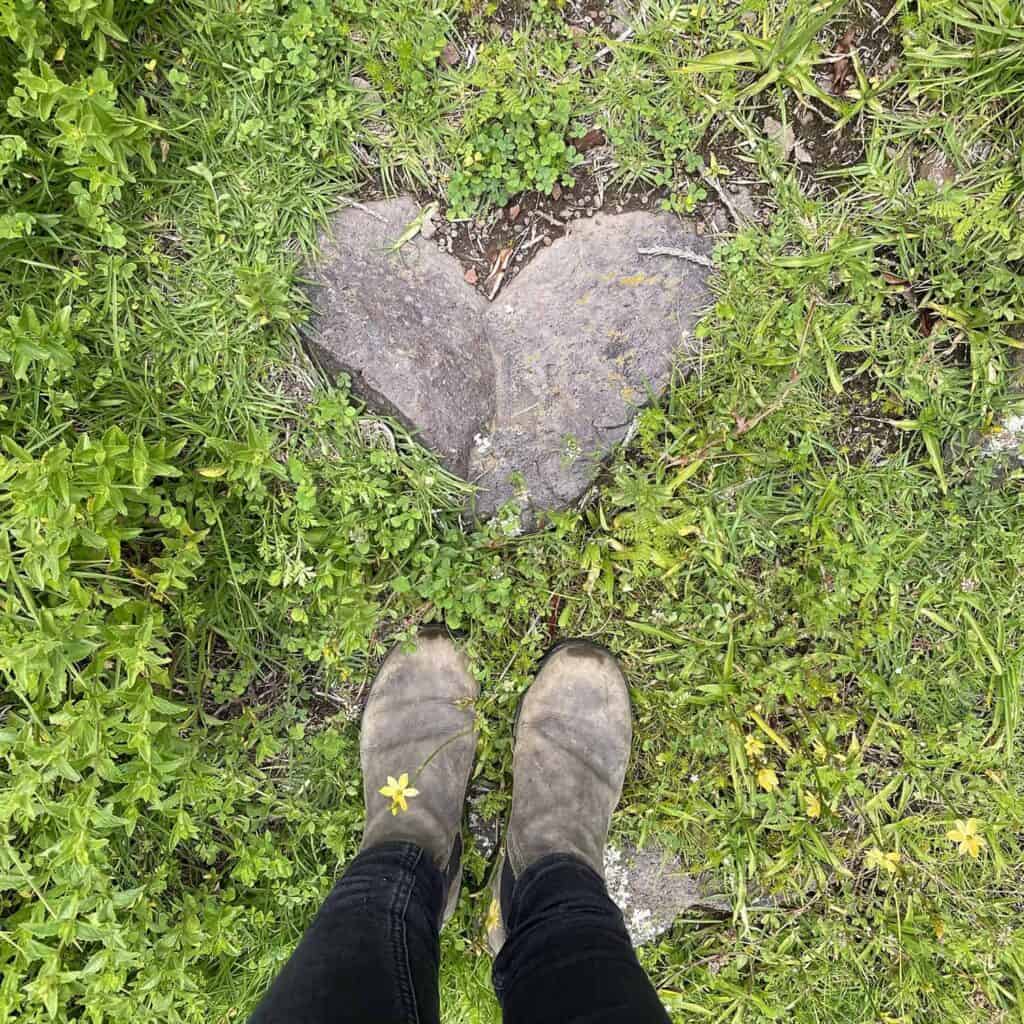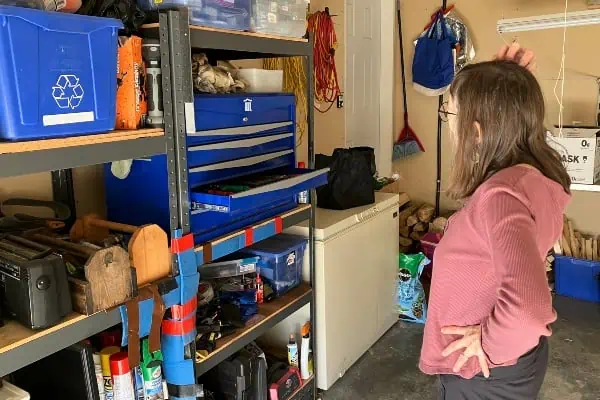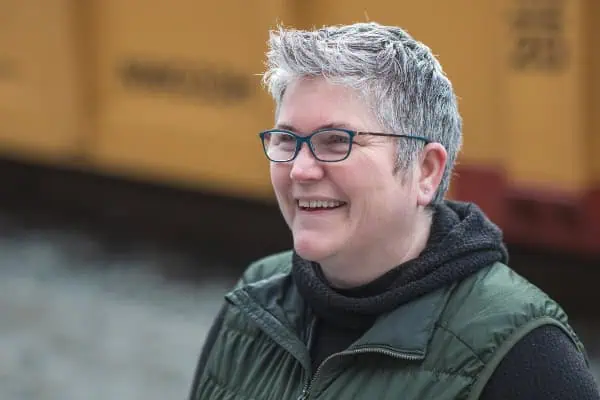


In a time when technology seems to connect people in more ways than ever before, it also seems to have brought us to a moment where emotionally and psychologically, humanity is at an all-time low point. Many of us feel isolated, bombarded and overwhelmed by news of the horrors happening around the world; everything feels tenuous: the economy, the environment, politics. As I write this, it’s early January and people are posting their highlight reels on their social-media accounts about all the wonderful things they experienced in 2022. While the high points should definitely be celebrated and shared, they don’t tell the full story. They don’t show people’s struggles, their fears, their hardships. And sometimes those are the only things that we see in ourselves and our own lives. The holidays and the new year can be a time of a lot of joy and community, but it can also be stressful: it can bring up difficult memories and remind us of our shortcomings. Our financial and emotional burdens can feel especially heavy, and the long, dark nights can lead to feelings of despair and depression. The exact things that are supposed to help us stay connected (Facebook, Instagram, etc.) are also the things that lead to more comparison in our lives, than ever before, and to more feelings of isolation and separation.
In his newest book, The Myth of Normal: Trauma, Illness & Healing in a Toxic Culture, the Hungarian-Canadian physician Gabor Maté explores how we, as a society, have come to this place of increasing chronic disease, stress, addiction and mental illness. In many ways, we’re all currently living in a time of social and possibly personal crisis. Uncertainty and loss of control are two of the biggest triggers of stress, globally, if not also personally, so many things seem uncertain and completely out of our control. Worldwide, many of us feel disconnected from ourselves, from others, from nature and from a sense of purpose. Maté refers to healing as moving towards wholeness, uncovering our traumas with “compassionate curiosity” and getting to know who we really are, and beginning to live our lives from that authentic self that we’ve lost touch with. However, we live in a society that so often tells us to not be ourselves and that teaches us early on that emotional vulnerability is dangerous and is best avoided.
We put on a happy face and no one can tell the pain that we’re going through behind the mask. Maybe you don’t feel like you can ask for help or be vulnerable with the people closest to you. Maybe you carry a lot of responsibility and believe you need to be strong for everyone else. Unfortunately, there are limits as to how long a person can just keep moving along as if nothing is wrong. The world has lost so many incredible, loving and kind people over the years, and the common reflection after their deaths is always one of shock and sadness over the despair they must have been feeling to have taken that final step. From the outside, we only saw Robin Williams’ humour and Anthony Bourdain’s love for adventure. This past December, Stephen “tWitch” Boss, a co-executive producer and DJ on the talk show The Ellen DeGeneres Show, died by suicide. He had a wife who he made viral dance videos with, and three beautiful young kids. And he seemed to have spent his life spreading joy and kindness. No one knew what he was really going through.
I truly hope that no one reading this is anywhere near such a place of pain and hopelessness. Most likely, however, you are going through something.
Maybe we can turn things around and start to use technology to search for pockets of positivity in a world that sometimes seems to be so set on getting us down. Maybe we can use it as a tool to find ways to feel less alone instead of only making us feel like less. And maybe we can begin to use it to learn how to feel more connected to ourselves again. Working on your mental health used to mean that you had to make an appointment with a therapist or psychiatrist in a town near you. That’s still a completely valid way to move towards healing, but fortunately it’s not the only option anymore. In places like the Yukon, we don’t have the same kind of in-person resources that a large city might have. It can be weeks or months until a therapist has an opening, and if you live in a rural part of the territory, getting to an appointment can feel like one more reason not to go. Luckily, there are an increasing number of resources online that can bring us closer to wholeness. BetterHelp, for example, is an online counselling platform that connects users to licensed therapists with whom you can interact via phone, video sessions, chat or messages. You could be sitting in your off-grid cabin in the Yukon or on vacation on a beach in Mexico and still be able to talk with an accredited and experienced professional.
If you’re more of a do-it-yourself individual and want to search for things on your own, there are so many therapists, counsellors, life coaches and motivational speakers who are sharing their work online now. They have Instagram accounts, YouTube channels and podcasts, and some even offer online courses. Whatever kind of help you’re looking for, there is most likely someone out there who will speak to what you’re going through. John Kim (a.k.a. The Angry Therapist) has built an entire therapeutic community online, along with writing several books on relationships, men’s mental health and living your own truth. Mel Robbins, who is best known for her books The 5 Second Rule and The High 5 Habit, launched a podcast at the end of last year that’s filled with her enthusiastic, no-excuses, practical approach to living a better life. For those interested in the growing research on the benefits of psilocybin therapy and the traditional uses of other plant medicines in treating depression and anxiety, the number of articles online are countless. There are thousands of resources available now to everyone with an internet connection, and often they’re free of charge.
We, as Yukoners, are also blessed with several non-digital mental-wellness tools. We have a great teacher and healer right outside our front doors in the form of the natural world that surrounds us here in the North. Ecotherapy (nature-based therapy) is becoming an increasingly popular form of improving one’s health and well-being by engaging in outdoor activities, and we’re lucky enough to live in a place where we can connect with nature whenever we want and as deeply as we need. We also live in communities, we know our neighbours and we can reach out to the people around us. In a city, one might be surrounded by a greater quantity of people but feel a lot more isolated and disconnected. In a way, the Yukon has its own pharmacy that it offers to us if we’re willing to be open to it.
Whether you’re going through the loss of a loved one, generalized anxiety, postpartum depression, loneliness, relationship problems, clinical depression or some other crisis or hard situation, know that you’re not alone. Ask for help, look for podcasts and books that speak to you, find hope online, share your story, spend time outside and reach out to nature and, most importantly, reach out to each other. We hide behind a strong façade sometimes because we think it’s best for the people closest to us. But maybe your vulnerability and openness can not only help save you, but someone else as well.




